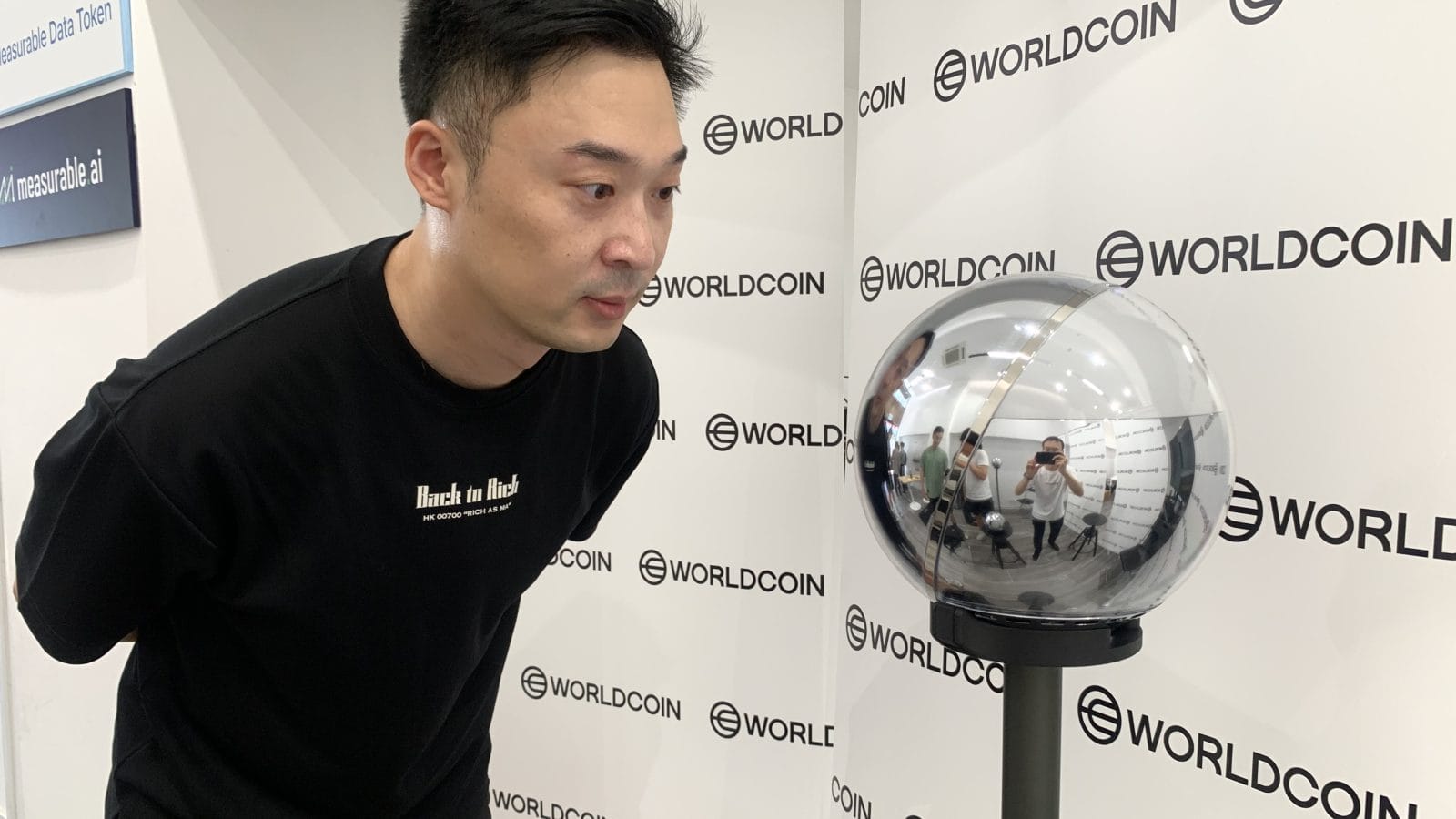Worldcoin Launches in US with Eye-Scanning Cryptocurrency Initiative

A cryptocurrency project co-founded by Sam Altman, known for his leadership at OpenAI, has officially launched in the United States. Worldcoin, a blockchain based digital currency tied to a unique iris-scanning identification system, is now available across most of the country, marking a significant step for the ambitious initiative. Backed by Tools for Humanity, the project aims to create a global system for verifying human identity online while offering financial incentives through its native token, WLD. This week’s rollout includes availability on major exchanges like Coinbase and physical scanning locations in several U.S. cities.
The launch event, dubbed “At Last,” took place in San Francisco, where Altman, the chairman of Tools for Humanity, and CEO Alex Blania unveiled key details. Beginning this week, individuals who scan their eyes at one of Worldcoin’s metallic orbs will receive 16 WLD tokens. Additionally, U.S. users who previously registered via the World app will receive a “pioneer grant” of 150 WLD deposited into their digital wallets. The project’s orbs, designed to capture biometric data for identity verification, will be available at over 7,000 “World Space” locations in cities like Atlanta, Austin, Los Angeles, Miami, Nashville, and San Francisco, as well as select Razer stores. Tools for Humanity also teased a compact “orb mini,” resembling a smartphone, as part of a recent design update.
Stay In The Loop and Never Miss Important Crypto News
Sign up and be the first to know when we publishA Vision for Identity and Economic Inclusion
Worldcoin’s mission, established by Altman, Blania, and Max Novendstern in 2019, centers on creating World ID, a blockchain based system to authenticate human identity in an increasingly AI driven world. The initiative seeks to address challenges posed by advanced artificial intelligence, particularly the difficulty of distinguishing human-generated content from AI-generated material. By scanning users’ irises, Worldcoin creates a unique digital ID that could serve as a foundation for online verification. Beyond identity, the project envisions Worldcoin as a potential mechanism for universal basic income, offering financial support to individuals whose livelihoods are disrupted by AI automation, possibly even becoming a CBDC of sorts, if Altman was on board with that.
The Worldcoin ecosystem extends beyond its token. The World wallet app enables users to send WLD and other cryptocurrencies through a private chat service linked to World IDs. The app also hosts over 150 mini-apps, including a new offering from the prediction market platform Kalshi. Tools for Humanity is further expanding Worldcoin’s utility through partnerships, including ID integrations with Stripe, Match Group (the parent company of Tinder), and Razer’s gaming platform. A forthcoming debit card, developed in collaboration with Visa, will allow users to convert WLD to fiat currency at checkout, with a planned release later this year.
The U.S. launch comes amid a shifting regulatory landscape. Under the previous Securities and Exchange Commission leadership, cryptocurrencies faced stringent oversight, which delayed Worldcoin’s entry into the American market. However, the current Trump administration’s more lenient approach to digital assets has provided Tools for Humanity with the confidence to proceed, though the token remains unavailable in New York state. This political shift has created a more favorable environment for crypto projects, enabling Worldcoin to expand its reach.
Despite its innovative approach, Worldcoin has faced significant criticism over its use of biometric data. Privacy advocates have raised concerns about the collection and storage of iris scans, questioning the security and ethical considerations of such a system. Nevertheless, the project has garnered support, with 12 million individuals from over 100 countries verified on its Ethereum based World Chain. The price of the WLD token has experienced considerable volatility, reflecting the broader fluctuations in the market.

